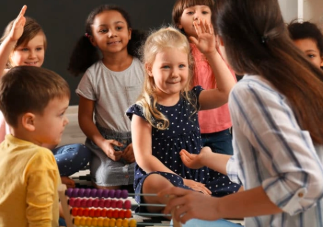Starting school can be both exciting and overwhelming for young children. One of the most important parts of this transition is learning how to follow classroom rules. These rules help create a safe, respectful, and productive learning environment. With the right guidance and support, children can adjust smoothly and confidently.
Start with Clear and Simple Expectations Preschool and early elementary teachers often begin the year by introducing rules using age-appropriate language. Instead of long lists, keeping the rules short and positive (like “Use kind words” or “Raise your hand”) helps children understand what is expected. Visual aids and consistent reinforcement further support learning.
Use Stories and Role-Playing Young children learn best through play and storytelling. Teachers and parents can use short stories, puppets, or classroom scenarios to model the right behavior. Role-playing allows children to practice these behaviors in a fun and engaging way, helping them internalize rules more naturally.
Create a Supportive Environment Consistency is key when helping children adjust. When adults respond to behaviors calmly and consistently, children feel safe and more willing to follow guidance. Encouraging words, gentle reminders, and praise for positive behavior reinforce the importance of following rules.
Involve Children in the Process Giving children a voice in creating or discussing classroom rules helps them feel ownership. Teachers might ask questions like, “Why do we walk indoors?” or “What happens when we listen to each other?” This encourages critical thinking and makes the rules more meaningful.
Build Routines Around Expectations Daily routines help children feel secure and provide natural opportunities to practice classroom rules. Transition times, morning meetings, and cleanup sessions are moments where routines and rules work hand in hand. Repetition and structure build confidence and cooperation.
Work Together with Families Open communication between teachers and families strengthens children’s ability to adjust. When children hear the same messages at home and school, it reinforces consistency. Sharing strategies and progress with parents helps build a team approach to support the child.
Celebrate Progress, Not Perfection Adjusting to classroom rules is a learning process. Celebrate small steps and improvements rather than expecting instant mastery. A smile, a sticker, or a kind word can go a long way in encouraging continued effort and growth.
With patience, positive reinforcement, and collaboration, children can adapt well to classroom expectations. Helping them understand the value of rules not only supports academic success but also fosters important life skills like responsibility and cooperation.


